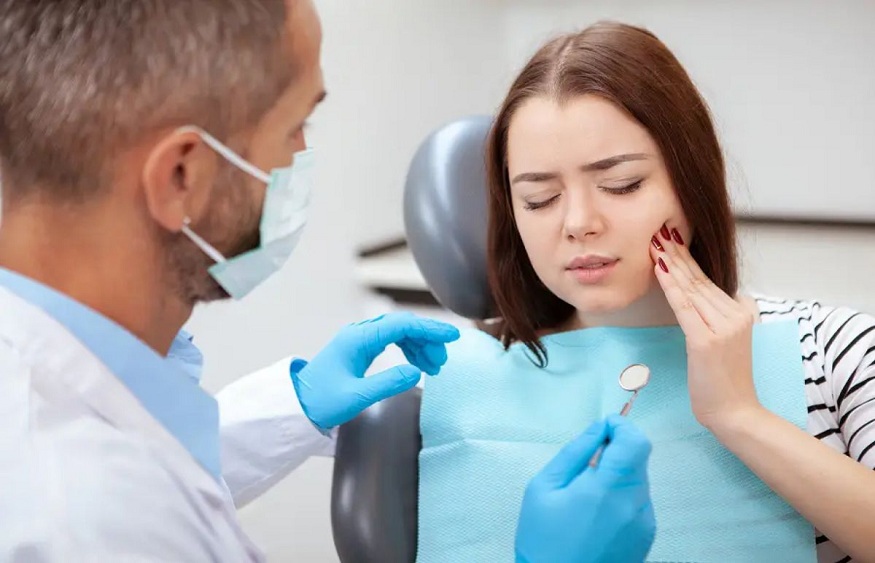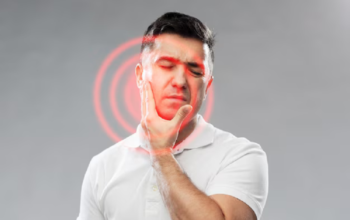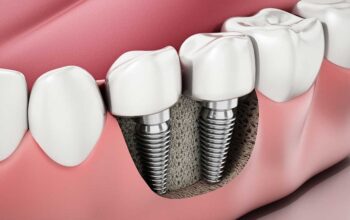Many people face painful dental emergencies, with one-third of the population experiencing issues like tooth fractures, knocked-out teeth, or infections from dental abscesses each year, according to the American Dental Association.
If there’s a dental emergency, it’s important to know when to act fast to save yourself from further pain, stress, or risk. A qualified dentist in Cary, NC, could assist you. An X-ray might reveal cracks in the teeth and facial structures in some cases and infected gums that cannot be treated through self-care.
What is a dental emergency?
While each patient is unique and may require different treatments, some emergencies occur more frequently than others.
Those that typically show up include:
- An oral infection that needs treatment.
- A tooth with a dental filling that recently came out.
- Bad chipping of a tooth.
- Existing swelling in the face or mouth area.
- A fractured mouth.
In uncertain situations, consult a dentist or oral expert.
Dental Emergencies
Here are some of the most common situations of dental emergency:
- Severe Toothache: Persistent or intense tooth pain may indicate an underlying issue, such as a deep cavity, infection, or damaged tooth.
- Knocked-Out Teeth: If a tooth is dislodged, act fast: place it in milk or saline and see a dentist immediately.
- Fractured or Broken Tooth: A broken tooth can cause considerable pain and raise the risk of infection, especially if the pulp is exposed.
- Bleeding Gums or Mouth: Uncontrolled bleeding, particularly after trauma or dental surgery, should not be ignored.
- Object Stuck Between Teeth: Foreign objects that cannot be removed with floss can cause irritation or infection if left untreated.
When Should You Seek Immediate Care?
Recognizing the severity of your situation is crucial in deciding if you need urgent dental treatment. Look out for these signs that require immediate attention:
- Uncontrolled Bleeding: If bleeding doesn’t stop after applying pressure, seek care promptly.
- Extreme Pain: Severe tooth or jaw pain that disrupts your daily activities is a sign of a serious issue.
- Knocked-Out Tooth: Quick action within 30 minutes improves the chances of saving the tooth.
- Signs of Infection: Swelling, fever, or a foul taste in the mouth can show a bump requiring emergency care.
If you’re experiencing these symptoms, contact your dentist or emergency clinic immediately.
How to Manage Dental Symptoms Until Your Appointment
Dealing with dental discomfort can be challenging, but there are steps you can take to ease symptoms until you can see your dentist. Here’s how to handle common issues effectively:
1) For a Mild Tooth Pain
Rinse your mouth with water and use dental floss to remove food particles. Avoid placing aspirin on your gums, as it can irritate. Schedule a dentist appointment for further evaluation.
2) For a Small Chip or Crack
If your tooth has a minor chip or crack that isn’t painful, you can usually wait to see your dentist. If the edges are sharp and irritate your mouth, cover them with orthodontic wax until you can get professional help.
3) For Broken Braces
Broken braces typically don’t require emergency care unless there’s bleeding. If a wire irritates your cheek or tongue, gently adjust it with a pencil eraser and cover it with orthodontic wax until you can see your orthodontist.
Conclusion
A dental crisis can be daunting, but knowing when to act and how to manage the situation can make all the difference. Quick treatment is paramount to stop complications like infection or tooth loss.
If you’re in the Cary area and need immediate care, contacting a trusted dentist in Cary, NC, can help address your concerns quickly and effectively.




